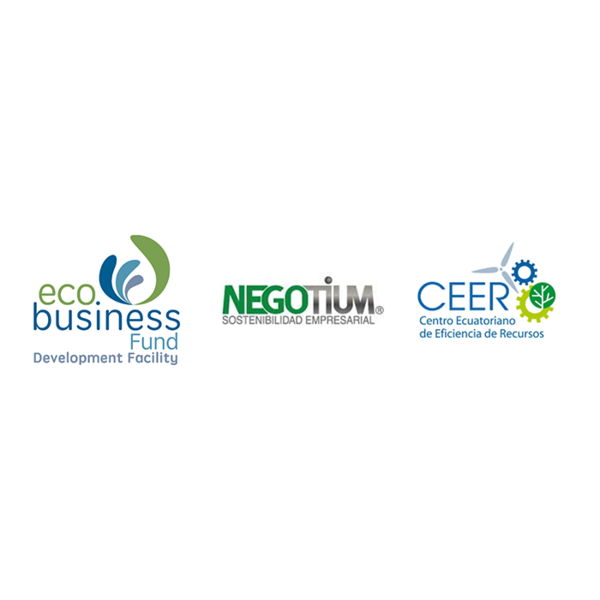
eco.business Development Facility hosted an online biosafety course as part of its COVID-19 crisis response strategy
As part of its COVID-19 crisis response strategy, the eco.business Development Facility hosted an online biosafety course for clients of the fund’s partner financial institutions in Latin America. Created together with the Ecuadorian Center on the Efficient Use of Resources (CEER in Spanish) and Negotium, the course teaches agricultural and aquaculture producers how to implement sustainable, resilient biosafety measures in response to new regulations due to the coronavirus pandemic.
Over 140 rice, sugarcane, shrimp, and banana producers together with bank officers from Banco Pichincha, Banco Guayaquil, and Banco del Pacífico in Ecuador and Multibank in Panama have taken the course thus far. Its aim is to equip producers to implement biosafety measures and protocols in their production processes that comply with local legal requirements, as well as to keep bank officers informed of the need for such measures among their clients. This allows producers to continue their operations, which in turn prevents producer and employee livelihoods from being threatened by reduced turnovers or temporary layoffs due to containment measures to limit the spread of COVID-19. Equally as important, these biosafety measures ensure that all employees can feel and be safe while at work, reducing the risk of infection without compromising business operations. The eco.business Development Facility will continue to host the course for new clients from its other partner institutions for the remainder of 2020.
Ms. Susanne Berghaus, Chairperson of the eco.business Development Facility, stated: “The eco.business Development Facility is committed to providing tailored technical assistance, and that means listening to the needs of clients and responding to them quickly. Through these biosafety courses, we want to help our partner institutions and their clients adapt to the effects of the global pandemic, and alleviate the economic fallout caused by the COVID-19 crisis. Not only does this build resilience during these turbulent times, it supports the adoption of more sustainable methods in business and consumption practices which is central to the mission of the fund.”
About the eco.business Fund
The eco.business Fund aims to promote business and consumption practices that contribute to biodiversity conservation, to the sustainable use of natural resources, and to mitigate climate change and adapt to its impacts. By providing financing for business practices that conserve nature and foster biodiversity, the fund seeks investments with both environmental and financial returns. The fund mainly provides loans to qualified financial institutions that on-lend the money to eligible borrowers, which include holders of recognized certifications or those making improvements in line with conservation and biodiversity goals. The fund supports sustainable operations in the sectors of agriculture, fishery (including aquaculture), forestry and tourism.
The eco.business Fund was initiated by Germany’s KfW Development Bank and Conservation International with financial support from the German Federal Ministry for Economic Cooperation and Development (BMZ). It has received further donor support from the European Commission. The fund’s additional investor base comprises the U.K. government’s Department for Environment, Food and Rural Affairs, Dutch development bank FMO, Austrian development bank OeEB, and institutional investors such as sustainable banking institution ASN Bank, German ethical bank GLS Bank, Calvert Impact Capital, and Raiffeisen Bank International. Finance in Motion, a leading impact investing company, is also an investor.
Operating hand-in-hand with the eco.business Fund, the eco.business Development Facility provides high-impact technical assistance to financial institutions and final borrowers.
For more information please visit www.ecobusiness.fund and follow us on Twitter @ecobusinessfund.
